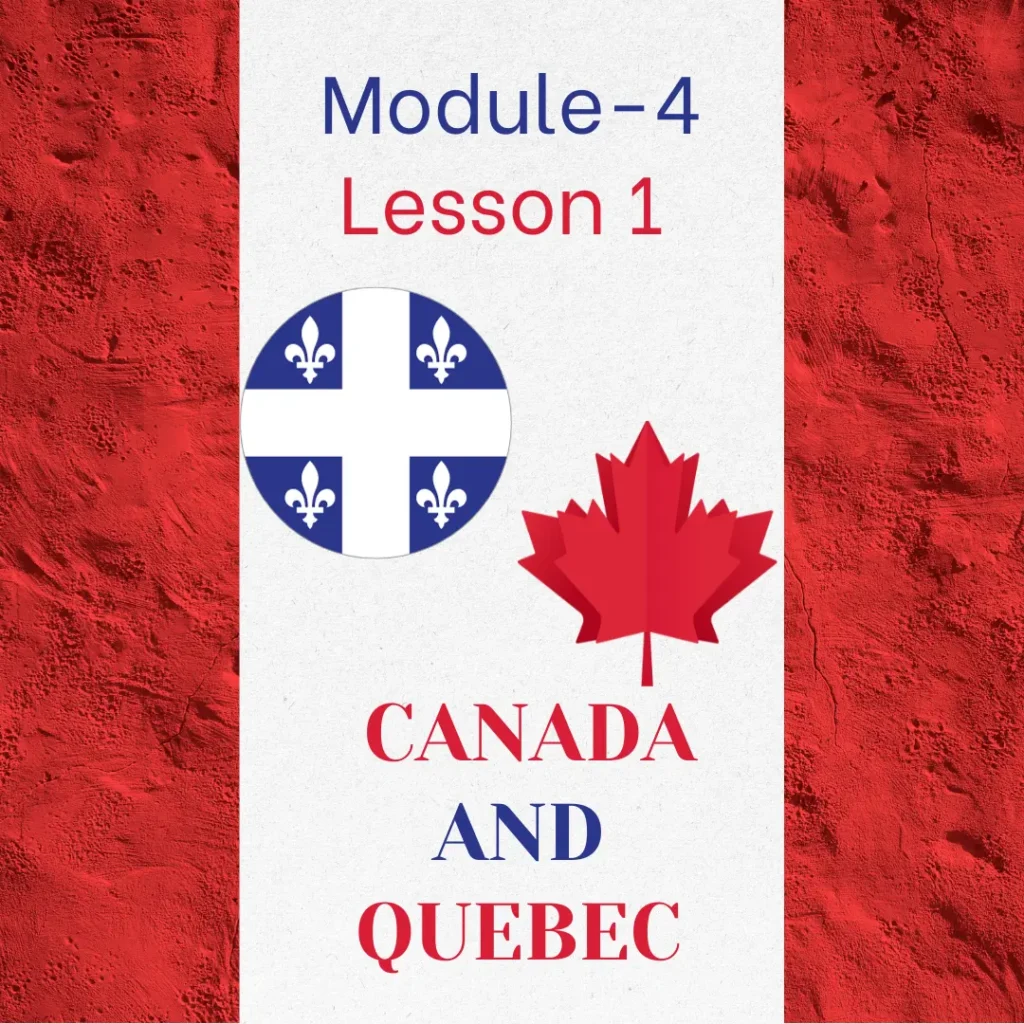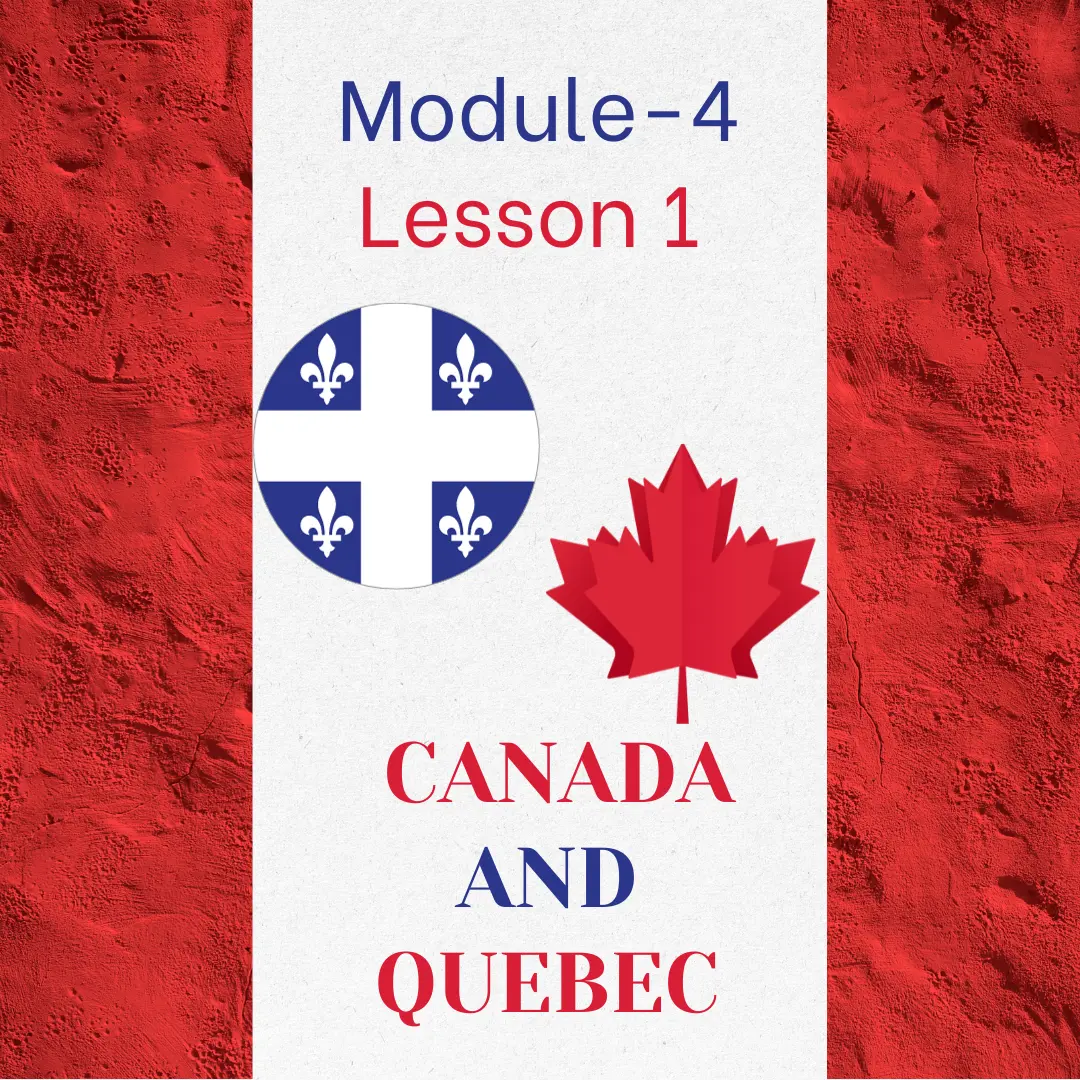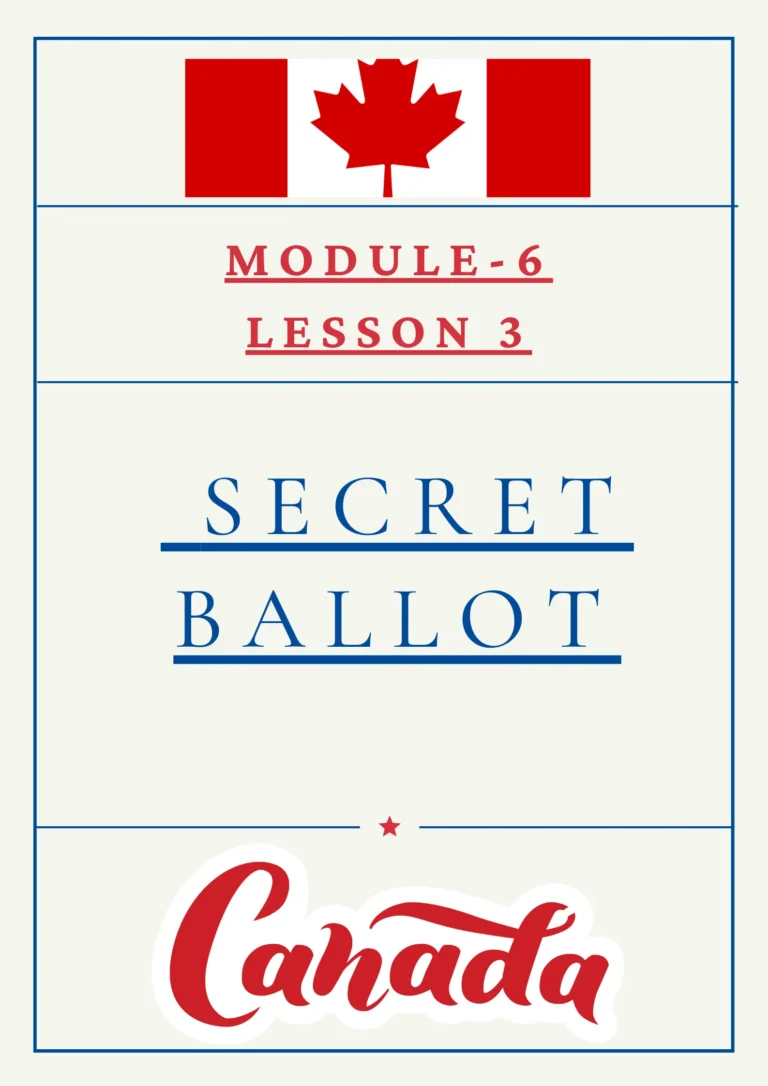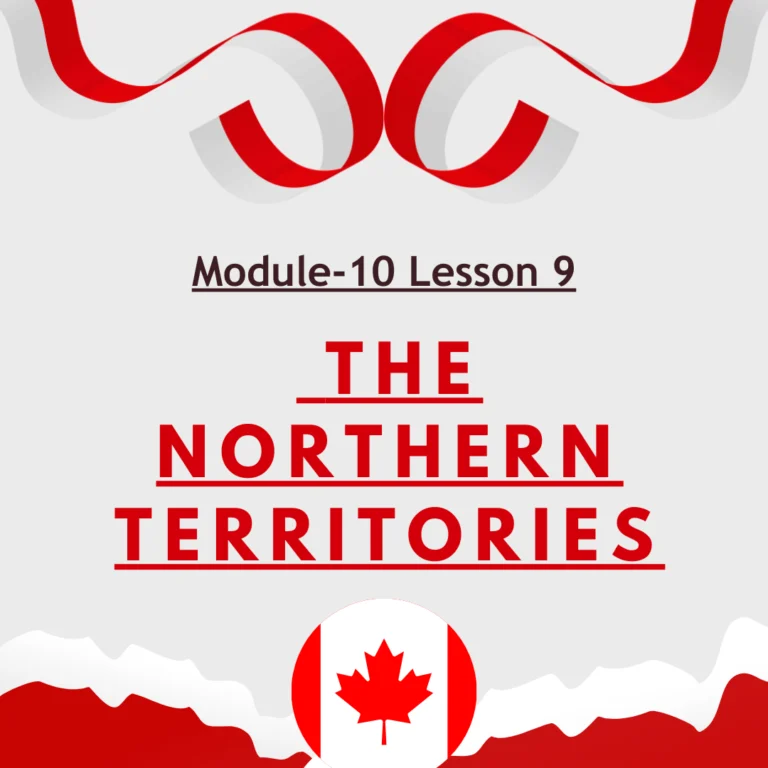Module-4 Lesson 1 Canada and Quebec
The intricate relationship between Canada and Quebec and their histories is explored in this exploration. Canada is an enormous and diverse country, and its relationship with Quebec, the largest province in Canada, has a complicated nature. Quebec’s historical, cultural and linguistic differences have been crucial in defining the identity of Canada and its governance.
Quiet Revolution: Quebec Identity at a Turning Point
The Quiet Revolution in the 1960s had a significant impact on Quebec’s path within Canada. Quebec experienced a radical transformation of its political, social and cultural spheres during this time. A secular, nationalist, and French-Canadian culture of pride combined with the rise of the secular, nationalist, movement laid the foundation for the new Quebec identity, which sought more autonomy in the Canadian Federation.
The importance of Francophone heritage: Language and cultural identity
The preservation of French culture and language is central to Quebecois’ identity. Quebec is at the forefront in efforts to promote and protect the French language. This has led to language laws such as Bill 101 which aim to guarantee the primacy for French within the province. Quebec’s cultural heritage and its protection are deeply interwoven with Quebec’s identity, which continues to influence the relationship between the province and the rest of Canada.
The Challenge of Quebec Separatism
In Quebec’s recent history, the pursuit of sovereignty is a common theme. Quebec’s referendums in 1980 and 1995 on independence resulted both times in the rejection of full sovereignty. The political tensions in Quebec during these times highlighted divergent opinions about Quebec’s place within Canada. The majority of Quebecers chose to stay in the federal union, but the sovereignty debates continue, adding to the dialogue between Quebecians and Canadians.
The Constitutional negotiations: the quest for recognition and accommodation
Canada and Quebec’s relationship was significantly affected by the 1982 patriation of Canada’s Constitution. Quebec initially did not endorse constitutional changes and its absence became a cause of tension. The Meech Lake and Charlottetown Accords were intended to address Quebec’s concerns and secure its constitutional acceptance. However, both met with challenges and did not succeed.
Distinct Society and the Mosaic of Federalism : Recognizing Quebec’s Unique Statute
In the course of constitutional negotiations, Quebec was recognized as “a distinct society” in Canada. The recognition was intended to confirm Quebec’s unique cultural and linguistic identity in the context of Canadian federalism. In the Meech Lake Accord, the concept of distinct societies is enshrined and influences discussions regarding Quebec’s place in the federation.
Balancing Autonomy with Unity: Federal-Provincial Relationships
Canada-Quebec’s federal-provincial relations are a constant balancing act that aims to strike a balance between autonomy and national cohesion. In the 1867 Constitution Act, certain powers are exclusively reserved to the federal level, and others for provinces. The division of powers allows Quebec and other provinces a high degree autonomy, especially in education, culture, and health care.
Cultural Policy: Protecting Quebec’s Cultural Heritage
Quebec’s robust cultural policy reflects its commitment to maintaining its own cultural identity. Quebec actively promotes the arts, film and literature. This creates a dynamic cultural scene which contributes both to Quebec’s cultural identity as well as its influence in the larger Canadian landscape. Quebec’s unique cultural identity is celebrated and not just recognized. It contributes to the mosaic of Canadian identities.
Quebec and Canada: Economic Partnership
Quebec plays a major role in the Canadian economy. The diverse nature of its economy is reflected in industries like aerospace, technology and natural resources. Montreal is Quebec’s biggest city and an important economic center. It has a strong presence in industries such as entertainment, finance and pharmaceuticals. Quebec’s success in the economy is vital to Canada’s overall prosperity, and demonstrates the close relationship that exists between the two provinces.
Navigating Multiculturalism and Identity Politics in Canada and Quebec
The relationship between Canada, Quebec and the world is currently challenged by the complexity of identity politics and multiculturalism. Quebec, which is a French-speaking province that embraces multiculturalism and diversity in Canada, can create tensions as it tries to preserve its French-speaking identity. The debates about accommodating religious symbols such as the Hijab in public institutions has sparked discussion about how to balance individual rights with Quebec’s desire for cultural preservation.

Summary: Complexity and resilience shape a dynamic partnership
The relationship between Canada, Quebec, and the rest of Canada is marked by its complexity, resilience and ongoing negotiations about identity and autonomy. Quebec’s linguistic and cultural pride combined with the historical roots that define its distinctiveness have led to a vibrant partnership between Canada and Quebec. The past challenges, such as referendums and constitution negotiations, are still present.






